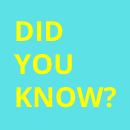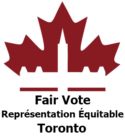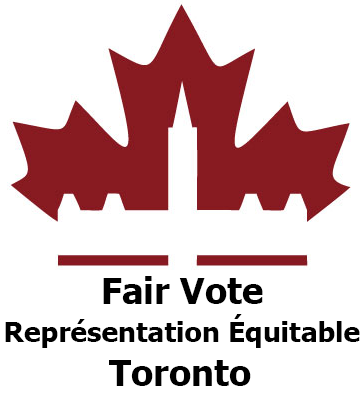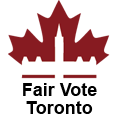
Politics is not a practice that should be left exclusively to the 338 elected representatives we periodically send to the House of Commons. After all, political action is nearly entirely our job in between elections — yes, our modest job. A letter to your MP here, a phone call there, signing a few petitions, attending rallies, and making a little respectful but impactful noise. If we don’t step up and deliver on this political action in a free and democratic G8 country like ours, then we are doing ourselves a disservice and are failing people in other parts of the world who fight and die for their right to protest or to even vote.
In fairness to any stripe or colour of government, they need to hear from you. Yes, they had a platform of ideas and visions you may have endorsed by voting for them, but they can switch priorities on us after being elected. That is, only if we let them.
One way you can make your voice heard is to demand action on electoral reform. As our electoral system often results in majority governments with only 39% of the vote, many Canadians remain unrepresented while the shenanigans in the House of Commons continue to be hyper-partisan and polarizing.
While it’s great we currently have a federal minority government supported by another party, there needs to be a long-term solution to our political woes. That’s where Proportional Representation comes in.
PR would help foster an environment of cooperative politics simply by breaking up single-member ridings into multi-member ridings (local or regional), thereby ensuring multiple parties share the responsibility of governing and moving our country forward.
To achieve this, Justin Trudeau should give up his control over electoral reform and hand it back to us by striking a National Citizens’ Assembly on Electoral Reform. This would give everyday Canadians the power to propose a new electoral system for Canada; one that works for all of us and not just a privileged few.
A synopsis of Mark Power’s opinion letter on Saltwire.com
Citizens’ assemblies: are they the future of democracy?

Citizens’ assemblies, a phenomenon that is gaining in popularity around the globe, date back to ancient Athens, where legislative panels, courts and councils were chosen via random selection.
More recently, citizens’ assemblies have convened to hammer out solutions to such issues as homelessness in Los Angeles, the allocation of a $5bn budget in Melbourne, Australia, and the longstanding ban on abortion in Ireland.
What electoral reform might look like in Canada

Last month, Réal Lavergne, former president of Fair Vote Canada and current president of the NCR chapter, appeared on rabble radio with editor Nick Seebruch and rabble parliamentary reporter Karl Nerenberg to debate what electoral reform might look like in Canada.
Webinar: Intro to PR systems for Canada

Are you familiar with the basics of PR and want to take a deeper dive into the mechanics of voting systems for Canada?
On Saturday, February 11th at 1pm EST Fair Vote Canada board member Ryan Campbell will introduce you to Open List PR, Single Transferable Vote (PR-STV), Rural-Urban Proportional and Mixed Member Proportional. The presentation will be followed by time for questions. Note: this is a technical webinar for people who want a more in-depth knowledge of systems.
Democratic Reform in the News
Electoral reform continues to make the news across Canada and around the world. Here is a sample of what is being said:
- Here’s Why Electoral Reform Isn’t Dead in Canada
- Attending a Citizens’ Assembly in Paris
- Quebec is a ‘soft autocracy,’ Without Electoral Reform

First past the post incentivizes parties to call early elections as soon as polling shows a 35-40% majority is within reach.
Proportional representation incentivizes parties to work together because no matter what they can’t get a majority unless they get 50% or higher.



